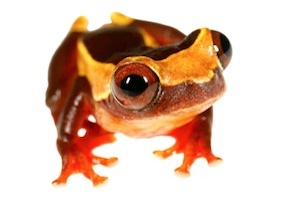Common Health And Wellness Issues in Reptiles: Signs And Symptoms and Solutions
In the detailed globe of reptile care, recognizing the typical health and wellness issues that may impact these distinct animals is vital in ensuring their well-being. Whether it's grappling with parasitic problems, browsing dehydration worries, or dealing with skin disorders that materialize in refined methods, being attuned to the symptoms and furnished with the knowledge of reliable solutions is crucial for any reptile proprietor.
Respiratory Infections
Breathing infections in reptiles can considerably affect their total wellness and require timely interest from experienced vets. These infections are typically triggered by infections, fungis, or microorganisms and can show up through symptoms such as hissing, nasal discharge, open-mouth breathing, and sleepiness. In reptiles, respiratory system infections can be specifically testing to diagnose and deal with as a result of their special makeup and physiology. Vets typically rely upon a combination of checkups, diagnostic imaging, and lab examinations to properly recognize the underlying source of the infection.
Treatment for respiratory infections in reptiles usually includes a mix of encouraging treatment, such as preserving correct humidity levels and temperature gradients in the enclosure, along with targeted drug to attend to the certain pathogen in charge of the infection. It is crucial for reptile proprietors to monitor their pets very closely for any type of signs of respiratory system distress and look for veterinary treatment at the earliest indication of an issue. With prompt intervention and ideal therapy, numerous reptiles can recoup completely from respiratory infections and resume typical activities.

Metabolic Bone Condition
What elements add to the development of Metabolic Bone Disease in reptiles?
Metabolic Bone Condition (MBD) in reptiles is largely triggered by an absence of correct calcium, phosphorus, and vitamin D3 degrees in their diet plan. When reptiles do not get ample calcium, either through their food or proper UVB direct exposure for vitamin D3 synthesis, they go to a high risk of developing MBD. Reptiles with diet plans reduced in calcium or unbalanced calcium to phosphorus proportions are specifically at risk. In addition, poor direct exposure to UVB light avoids reptiles from manufacturing vitamin D3, which is critical for calcium absorption and bone health.
Not enough humidity levels can likewise influence a reptile's capability to metabolize calcium efficiently. Normal vet check-ups, correct husbandry methods, and a well balanced diet are essential to protect against Metabolic Bone Disease in reptiles.
Parasitic Invasions
Parasitical invasions pose a substantial health and wellness risk to reptiles, influencing their general health and needing timely veterinary focus. Reptiles can be affected by numerous parasites, consisting of mites, ticks, interior worms, and protozoa. These bloodsuckers can cause a variety of symptoms, such as fat burning, lethargy, skin irritability, diarrhea, and even fatality if left neglected.
One usual parasite located in reptiles is the mite, which can trigger skin stress, anemia, and irritation. Ticks are one more exterior bloodsucker that can create and send conditions discomfort to the reptile. Inner bloodsuckers like worms and protozoa can lead to digestive issues, malnutrition, and damage the reptile's immune system.
To identify a parasitical invasion, a vet may carry out fecal tests, skin scrapings, or blood tests. Therapy often involves deworming drugs, antiparasitic baths, or in severe cases, hospitalization. Preventative actions such as regular veterinary check-ups, correct hygiene, and quarantine treatments for brand-new reptiles can aid decrease the threat of parasitical invasions and make sure the well-being of reptile animals.
Dehydration and Hydration Issues
Dehydration in reptiles can dramatically affect their health and health, requiring prompt intervention and appropriate hydration management. If left untreated, dehydration can lead to significant health concerns and even be deadly to the reptile.
To prevent dehydration, reptile owners should ensure that their family pets have access to clean water at all times. The water meal should be big enough for the reptile to take in if needed, specifically for varieties that soak up water through their skin. Furthermore, keeping appropriate humidity degrees in the reptile's unit and giving routine bathrooms can assist protect against dehydration.
In cases of dehydration, it is essential to look for vet treatment quickly. A vet might carry out fluids either orally or with shots to rehydrate the reptile. It is necessary to resolve the underlying source of dehydration to avoid reoccurrence and make certain the reptile's overall wellness.
Skin Disorders

Verdict

Respiratory infections in reptiles can dramatically affect their total wellness and call for prompt focus from knowledgeable veterinarians (rain frog for sale). Preventative procedures such as normal veterinary check-ups, appropriate health, and quarantine procedures for brand-new reptiles next can assist decrease the danger of parasitical problems and guarantee the health of reptile animals
If left neglected, dehydration can lead to serious wellness issues and even be deadly to the reptile.
Regularly evaluating your reptile for any modifications in skin appearance, shade, or appearance can aid in very early detection and therapy of skin disorders, promoting the total from this source wellness and well-being of your flaky companion. - rain frog for sale
In conclusion, reptiles are susceptible to numerous health problems such as respiratory system infections, metabolic bone illness, parasitic problems, dehydration, and skin disorders.